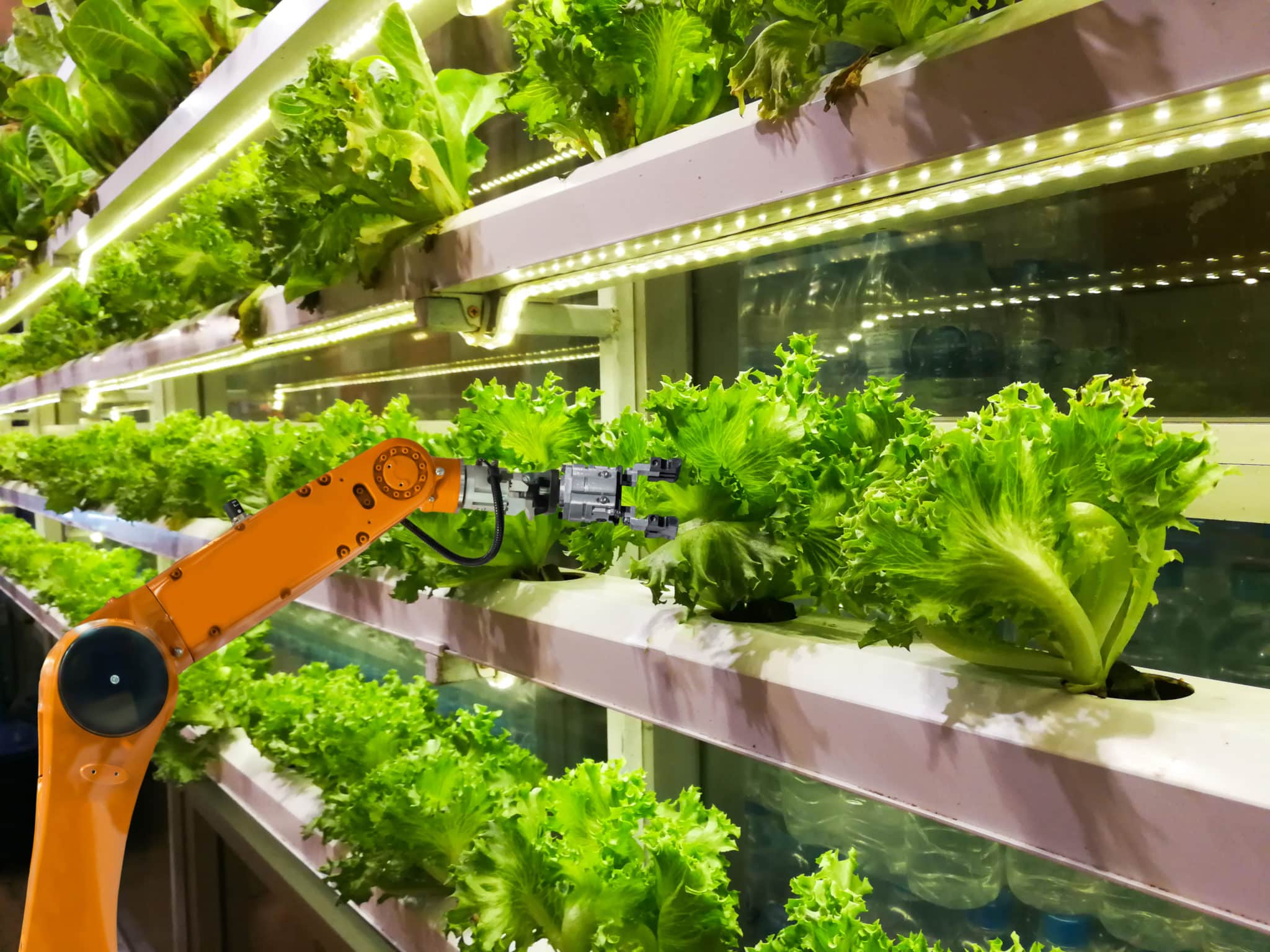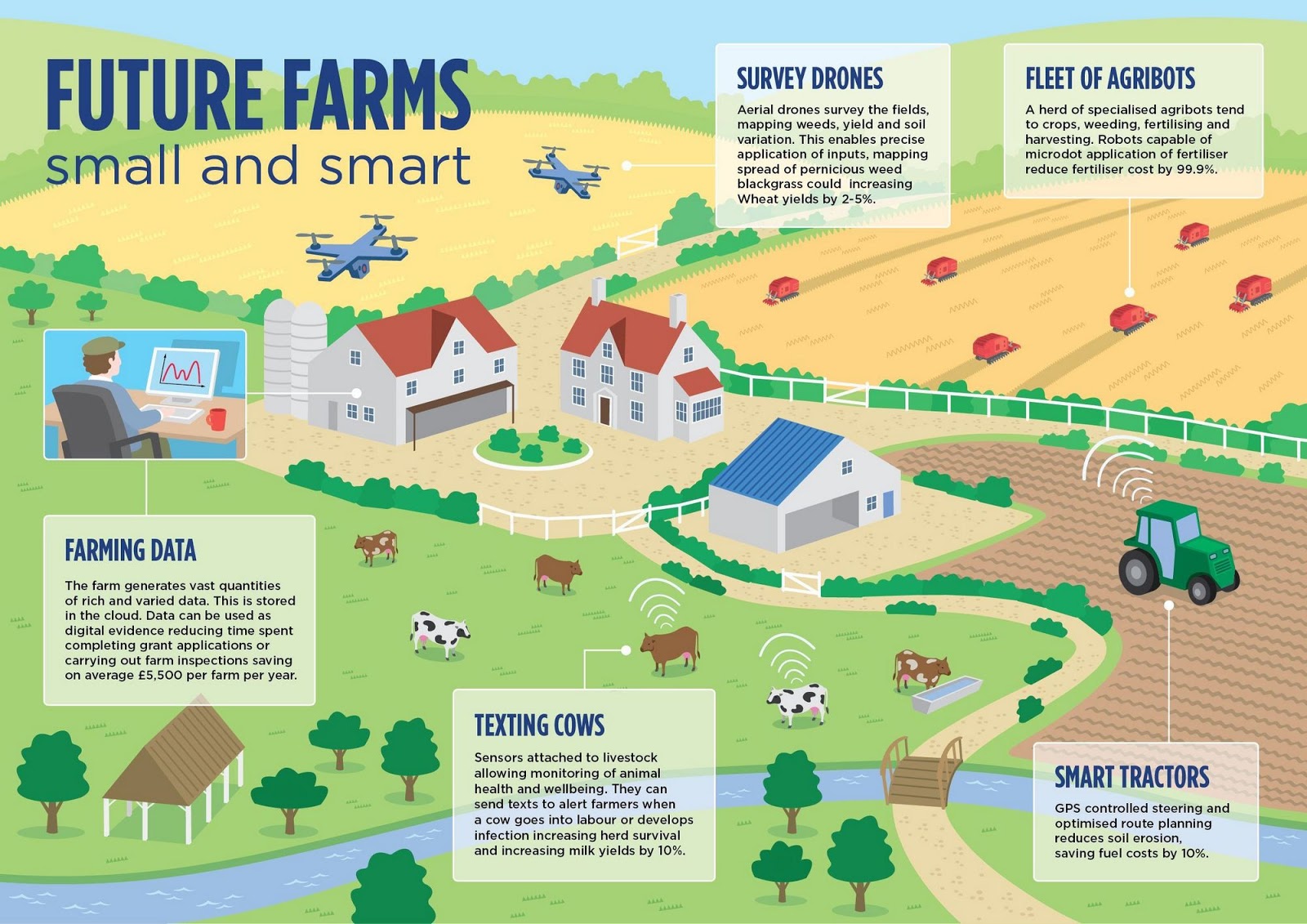The agricultural industry has been a vital part of human civilization for thousands of years. Until recently, farming practices and food production have remained relatively unchanged. However, with the advent of new technologies, the future of agriculture and food production is set to be transformed. In this article, we will explore the various ways in which technology is revolutionizing agriculture and food production, and what this means for the future of the industry.
Robotics and Automation
 Source: bing.com
Source: bing.comOne of the most significant changes that technology is bringing to agriculture is the rise of robotics and automation. Robots and machines are being developed and used to perform tasks such as planting, harvesting, and weeding. These machines are designed to perform tasks that would have been difficult or impossible for humans to do manually, and they can work much faster and more efficiently than human laborers.
Automation is also being used in food production. Food processing plants are using machines to sort, wash, and package food products. This automation is making food production more efficient, reducing costs, and improving food safety by reducing the risk of contamination.
Smart Farming
 Source: bing.com
Source: bing.comAnother way technology is transforming agriculture is through the use of smart farming techniques. Smart farming involves using sensors, drones, and other technologies to collect data about crops, soil, and weather conditions. This data is then used to make informed decisions about planting, irrigation, fertilization, and pest control. By using data to optimize farming practices, farmers can increase crop yields, reduce waste, and improve sustainability.
Vertical Farming
 Source: bing.com
Source: bing.comVertical farming is a technique that involves growing crops in stacked layers, using artificial lighting, and controlled environment agriculture technology. This technique allows for year-round crop production and can be done in urban areas, reducing the need for transportation and storage. Vertical farming also uses less water and fertilizer than traditional farming methods, making it a more sustainable option.
Biotechnology
 Source: bing.com
Source: bing.comBiotechnology is another area of technology that is transforming agriculture and food production. Biotechnology involves using genetic engineering techniques to create crops that are resistant to pests, diseases, and environmental stress. It also allows for the creation of crops that have enhanced nutritional value and longer shelf life. Biotechnology has the potential to increase crop yields and reduce the use of pesticides and herbicides, making food production more sustainable.
Blockchain
 Source: bing.com
Source: bing.comBlockchain technology is being used to improve transparency and traceability in food production. By using blockchain, consumers can track the entire history of a food product, from the farm to the table. This technology can help to reduce food fraud, improve food safety, and increase consumer trust.
Conclusion
The future of agriculture and food production is set to be transformed by technology. Robotics and automation, smart farming, vertical farming, biotechnology, and blockchain are just a few of the technologies that are being used to improve efficiency, sustainability, and transparency in the industry. As these technologies continue to evolve, the agricultural industry will become more productive, sustainable, and resilient.

